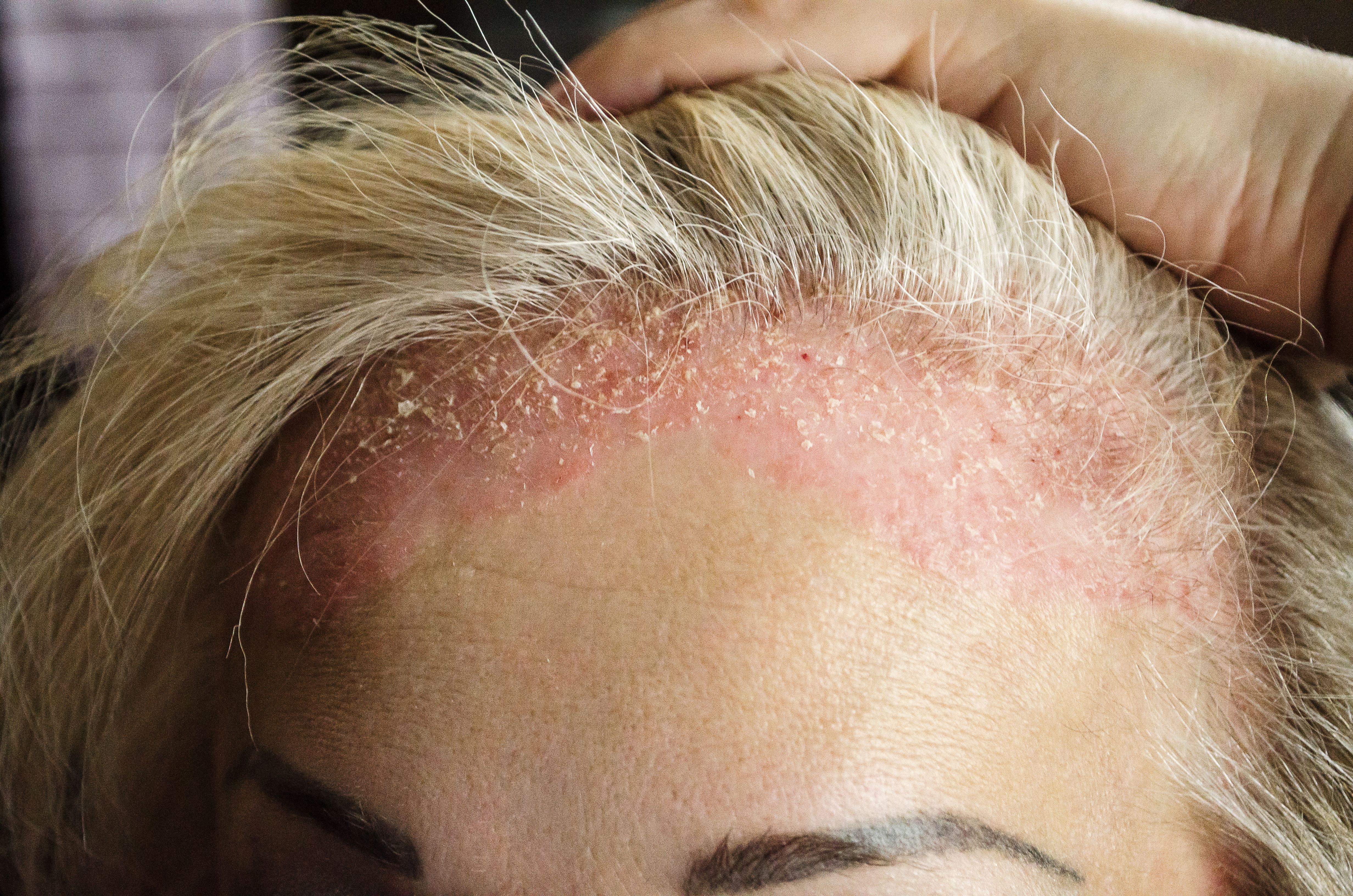- Center on Health Equity & Access
- Clinical
- Health Care Cost
- Health Care Delivery
- Insurance
- Policy
- Technology
- Value-Based Care
Deucravacitinib Shows Superior Efficacy Over Placebo, Apremilast in Patients With Moderate to Severe Scalp Psoriasis
Response rates were greater with deucravacitinib vs placebo or apremilast at 16 weeks in patients with moderate to severe scalp psoriasis, according to one study.
In a study comparing deucravacitinib with placebo or apremilast, deucravacitnib showed better efficacy and was well tolerated among patients with moderate to severe scalp psoriasis.

The researchers aimed to evaluate the efficacy and safety of deucravacitinib in patients with scalp psoriasis. Findings were published published in the Journal of the American Academy of Dermatology.
“Topical agents are commonly used as first-line treatment for scalp psoriasis but are often not effective or well tolerated and are associated with low patient adherence and acceptance,” the authors wrote. “A need exists for more effective and well-tolerated therapies for scalp psoriasis, particularly for patients in whom topical agents do not provide adequate control.”
The study included 1686 patients from the POETYK PSO-1 (NCT03624127) and POETYK PSO-2 (NCT03611751) trials, who were 18 years and older and had moderate to severe plaque psoriasis. In both 52-week double-blinded trials, patients were randomized 1:2:1 to receive either oral placebo, deucravacitinib 6 mg once daily, or apremilast 30 mg twice daily.
After randomization, 166 patients received placebo in PSO-1 and 255 in PSO-2, 332 received deucravacitinib in PSO-1 and 511 in PSO-2, and 168 received apremilast in PSO-1 and 254 in PSO-2. Additionally, those who were randomized to placebo crossed over to deucravacitinib at week 16 in both trials and patients randomized to deucravacitinib continued treatment through week 52 in PSO-1.
The current analyses evaluated scalp-specific Physician Global Assessment score of 0 or 1 (ss-PGA 0/1), 90% or more improvement from baseline in Psoriasis Scalp Severity index (PSSI 90), and change from baseline in PSSI. Adverse events were evaluated through week 16.
At baseline, there were 1084 patients with moderate to severe scalp psoriasis included in the study. Most patients in both trials had scalp involvement of any severity, including 609 individuals (91.4%) in PSO-1 and 900 (88.2%) in PSO-2. Approximately two-thirds of patients had moderate to severe scalp psoriasis (PSO-1: n = 440 [66.1%]; PSO-2: n = 644 [63.1%]). Furthermore, patients in this subgroup had a mean (SD) age of 45.5 (13.6) years, and most were male (63.8%) and White (86%).
The response rates with deucravacitinib were greater than with placebo or apremilast for ss-PGA 0/1 (64% vs 17.3% vs 37.7%; P < .0001), PSSI 90 (50.6% vs 10.5% vs 26.1%; P < .0001), and change from baseline in PSSI. Moreover, response rates were remained consistent through 52 weeks with continuous deucravacitinib, and safety remained consistent within the entire study population.
However, the researchers acknowledged some limitations to the study, since patients with milder forms of psoriasis were not included, and therefore, the results might not be generalizable to all patients with scalp psoriasis in routine clinical practice. Additionally, the researchers noted the comparisons vs placebo and apremilast were limited in duration in the first 16 and 24 weeks, respectively, of the POETYK trials.
Despite these limitations, the researchers believe deucravacitnib demonstrated better efficacy and acceptable safety and tolerability in patients with moderate to severe scalp psoriasis.
“Efficacy in scalp psoriasis with deucravacitinib was superior to placebo and apremilast regardless of baseline body weight, body mass index, or prior antipsoriatic treatment, and efficacy was maintained through 52 weeks in patients who received continuous deucravacitinib treatment,” wrote the researchers.
Reference
Blauvelt A, Rich P, Sofen H, et al. Deucravacitinib, a selective, allosteric tyrosine kinase 2 inhibitor, in SCALP PSORIASIS: a subset analysis of two phase 3 randomized trials in plaque psoriasis. J Am Acad Dermatol. Published online December 18, 2023. doi:10.1016/j.jaad.2023.11.060
